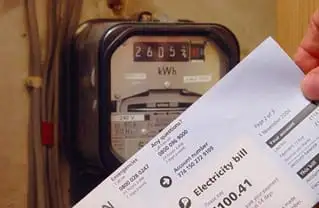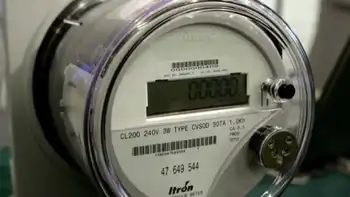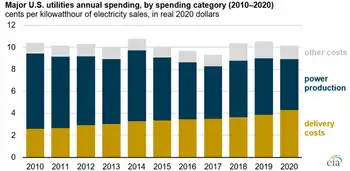Toronto Hydro bill may jump 5.5 per cent
TORONTO, ONTARIO - A typical Toronto householder's electricity bill will jump 5.5 per cent, or $5.56 a month, as a result of new rates being sought by Toronto Hydro.
The city-owned utility has applied to the Ontario Energy Board for an increase of nearly 20 per cent in the rates it charges for its portion of the electricity bill, which makes up about 30 per cent of the total charge.
If the energy board grants the new rates, a householder billed for 1,000 kilowatt hours in a month would pay $106.29 under the new rates, up from $100.73.
Further changes in provincial electricity policy are likely to result in more increases over the coming months.
Much of the money raised by Toronto Hydro's new rates will be spent on conservation programs, such as paying residents for old, electricity-guzzling "beer fridges" that sit empty most of the time.
Toronto Hydro and other local utilities own and maintain the wires that deliver electricity directly to homes and businesses. They raise money in two ways: through a fixed monthly charge, and through a rate charged for each kilowatt hour of electricity a customer uses.
Toronto Hydro's fixed monthly fee actually falls slightly in the new rate proposal as a result of tax rules. It will drop to $13.64 from the current level of $14.03.
But the charge customers pay to Toronto Hydro for each kilowatt hour of power they use will rise sharply. A typical householder using 1,000 kilowatt hours of power a month will pay $20.05 under the proposed rates — up from $14.10 under the current rates.
In the new rate, $2.76 comes from a special charge that would be imposed for three years in order to recover money the utility spent to prepare for the electricity market that opened in 2002.
The rest of the bill consists of a variety of charges, including $49 that flows to the generators that produced the electricity; $10.40 to Hydro One, whose high-voltage wires deliver power to the local utilities; plus charges covering the cost of operating Ontario's electricity market; and $7 to repay the debt left by the former Ontario Hydro.
Julie Girvan, a consultant who often represents consumer groups at the energy board, said the increase stems in large measure from the recent, sometimes tortured, history of hydro regulation.
"Part of the problem was that we had a rate freeze imposed (on local utilities) by the previous government," she said. "There had to be some level of catch-up."
The previous Conservative government granted utilities leeway to increase their rates in the late 1990s, when they turned the utilities into profit-making corporations instead of not-for-profit co-operatives. But when the utilities then ramped up their rates to generate profits, the Tories balked and slapped a freeze on their rates.
The final stage of the freeze has now been lifted on condition the utilities spend the money on conservation.
Toronto Hydro has promised the energy board it will spend $39.8 million this year on conservation. That includes the fridge buy-back (the details of which haven't been announced), improving energy management in public housing developments and installing more efficient LED lights in traffic signals.
Toronto Hydro's increase is heftier than the one Hydro One is seeking for 2006.
Hydro One is seeking an increase that will boost most of its residential customers' bills by an average of 2.2 per cent. It's seeking a 7.3 per cent increase on its own portion of the bill.
Related News

During this Pandemic, Save Money - How To Better Understand Your Electricity Bill
NEW YORK - Especially during these tough economic times, facility executives who don’t understand how their power is priced have been disappointed when their energy projects failed to produce expected dollar savings. Here’s how not to be one of them.
Your electric rate is spelled out in a document called a “tariff” that can be downloaded from your utility’s web page. A tariff should clearly spell out the costs for each component that is part of your rate. Don’t be surprised to learn that it contains a bunch of them. Unlike residential electric rates, commercial electric bills are not based solely…




